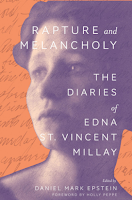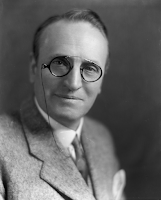Today is the 200th anniversary of the birth of Edmond de Goncourt, a major French literary figure of the 19th century, and the founder of Académie Goncourt which administers France’s famous prestigious literary award - the Prix Goncourt. Edmond wrote many of his books in collaboration with his younger brother, Jules, including - extraordinarily - their diary. This is considered to be one of the finest of French diaries, for its entertaining and gossipy record of Paris’s social and literary life in the second half of the 1800s.
 Edmond de Goncourt was born on 26 May 1822 in Nancy, and his brother Jules in Paris in 1830. They both attended good schools in Paris, but their father died while Jules was still a child; their widowed mother then died in 1848, leaving them both a modest income. The legacy meant Edmond need not continue working as a clerk, a job he hated. Subsequently, the brothers became artists, and even went on a painting tour; they evolved into art critics and historians. But, it was to literature that the brothers - who were inseparable - would become most committed.
Edmond de Goncourt was born on 26 May 1822 in Nancy, and his brother Jules in Paris in 1830. They both attended good schools in Paris, but their father died while Jules was still a child; their widowed mother then died in 1848, leaving them both a modest income. The legacy meant Edmond need not continue working as a clerk, a job he hated. Subsequently, the brothers became artists, and even went on a painting tour; they evolved into art critics and historians. But, it was to literature that the brothers - who were inseparable - would become most committed.
After an unsuccessful novel and some attempts at drama, the Goncourts began publishing books - always authored jointly - on various aspects of art and society in 18th century France. In the 1860s, they returned to fiction, and published six novels which they described as history which might have taken place. Jules, the more highly strung and delicate of the two, suffered a nervous breakdown and died in 1870, possibly from a syphilis-related condition. Edmond continued sporadically to write further books on his own; he also hosted a literary salon. The brothers’ literary style is said to have been influential in the development of naturalism and impressionism.
Edmond died in 1896; and in his will he left his entire estate to finance the Académie Goncourt to promote literature in France. Establishing the academy proved a contentious and controversial development in French literary circles, nevertheless, from 1903 to the present day, the academy’s ten-member board has awarded the now-famous Prix Goncourt for the year’s best work of fiction. Wikipedia has brief articles on the brothers, the Académie Goncourt and the Prix Goncourt. Further information is also available from Encyclopaedia Britannica and The Paris Review.
Today, the Goncourt brothers are remembered largely for their gossipy and informative diary. They began keeping a journal in December 1851. Astonishingly, the brothers wrote the journal together, as one: astonishingly, for co-authorship of books is one thing, co-authorship of a diary is another. Robert Baldick, who edited and translated an English version of the diary in the 1960s (see below), described the co-authorship process as follows: ‘Jules usually acted as the scribe, with Edmond standing behind him and leaning over his shoulder, so that, as with their novels, it is impossible to attribute any entry to one or other: even when an anecdote clearly refers to the experiences of one brother, the recording of it may well have been modified by the other, in the process of what Edmond called their ‘dual dictation’.’
When Jules died, Edmond decided to stop keeping the journal, but, as Baldick explains: ‘the compulsion to describe his brother’s long death-agony, partly to derive comfort from the memory, partly to pay tribute to the dead man, and partly no doubt out of habit, proved too strong for him. Then came the Franco-Prussian War, the Siege of Paris, the Commune, and the fascination of recording his impressions of these events enslaved Edmond once more to the Journal.’ Edmond went on writing the diary until a few months before his death.
Extracts from the journal appeared in the newspaper Figaro in 1886, and a first published volume came out a year or so later. Figaro, though, attacked it as a ‘masterpiece of conceit’. Another eight volumes appeared in Edmond’s lifetime, often attracting personal and public hostility. All of these are available online at Internet Archive. A two volume edition of the diaries was first published in English by Heinemann in 1895 as Edmond and Jules de Goncourt: With Letters and Leaves from their Journals, compiled and translated by M A Belloc and M Shedlock. These are also downloadable from Internet Archive.
Several more editions have since been published, including The Journal of the De Goncourts, with an introduction by Julius West (Thomas Nelson, circa 1915) but with no translator credited. In 1962, Oxford University Press published Pages from the Goncourt Journal, edited and translated by Robert Baldick. Baldick concluded: ‘Whether it is considered as a monumental autobiography or as a history of social and literary life in Paris in the second half of the nineteenth century, the Goncourt Journal is a document of absorbing interest and outstanding importance.’
Here are several extracts. The first three, written while Jules was still alive, are taken from Baldick’s translation; the others are taken from the online version of the Julius West edition.
17 March 1861
‘Flaubert said to us today: ‘The story, the plot of a novel is of no interest to me. When I write a novel I aim at rendering a color, a shade. For instance, in my Carthaginian novel, I want to do something purple. The rest, the characters and the plot, is a mere detail. In Madame Bovary, all I wanted to do was to render a grey colour, the mouldy colour of a wood-louse’s existence. The story of the novel mattered so little to me that a few days before starting on it I still had in mind a very different Madame Bovary from the one I created: the setting and the overall tone were the same, but she was to have been a chaste and devout old maid. And then I realized that she would have been an impossible character.’
6 May 1861
‘At four o’clock we were at Flaubert’s, who had invited us to a reading of Salammbô, together with a painter called Gleyre whom we found already there. From four till six, Flaubert read to us in his booming, sonorous voice, which cradles you in a sound like a bronze murmur. At seven we dined, and after dinner and a pipe, the reading was resumed, taking us by way of readings and summaries of what was omitted, to the end of the last chapter, the copulation of Salammbô and Mathô. It was then two in the morning.
I am now going to write what I think, in my heart of hearts, of this work by a man I like - and there are not many such men - and whose first book I greatly admired. Salammbô is less than what I expected from Flaubert. His personality, so well dissembled, so completely absent from that impersonal work, Madame Bovary, comes through here, blown up, melodramatic, resorting to bombastic writing and crude colouring, one might almost say illumination. Flaubert sees the Orient, and what is more the Orient of antiquity, in the guise of an Algerian bazaar. Some of his effects are childish, others ridiculous. The attempt to rival Chateaubriand is the great defect of the book, robbing it of originality: Les Martyrs keeps coming through. Then there is nothing more wearisome than the everlasting descriptions, the button-by-button portrayal of the characters, the miniature-like representation of every costume. [. . .] His characters’ sentiments are not the product of a certain conscience, lost with a certain civilization: they are the commonplace, universal sentiments of all humanity and not of Carthaginian humanity; and his Mathô is at bottom no more than an opera tenor in a barbaric poem.’
30 July 1861
‘I have drunk my fill, I have had my mistress. I am in that condition in which the monstrosities one has committed seem like children’s games. I am left with a craving which, in drunkenness outlasts love and copulation, a craving which shows all over a man’s face, in his mouth and in his flaring nostrils. How utterly futile debauchery seems once it has been accomplished, and what ashes of disgust it leaves in the soul! The pity of it is that the soul outlives the body, or in other words that impression judges sensation and that one thinks about and finds fault with the pleasure one has taken.
And these are the thoughts which occur to me.
The facts: nothing matters but the facts: worship of the facts leads to everything, to happiness first of all and then to wealth.
Touch this or that switch in a woman and out comes either pleasure or truth: you can make her admit at will that she is having an orgasm or that she loves you. This is appalling. Bonald’s maxim needs to be reversed: man is mind betrayed, not served, by his organs.
There are moments when, faced with our lack of success, I wonder whether we are failures, proud but impotent. One thing reassures me as to our value: the boredom that afflicts us. It is the hall-mark of quality in modern men. Chateaubriand died of it, long before his death. Byron was stillborn with it. The essence of bourgeois talent is to be gay. Voltaire spent his life taking an interest in something: himself.
There are moments of discouragement when glory seems as insignificant as the office of mayor of a little market-town.
Debauchery is perhaps an act of despair in the face of infinity.
Any man who does not see everything in terms of self, that is to say who wants to be something in respect of other men, to do good to them or simply give them something to do, is unhappy, disconsolate, and accursed.’
29 April 1877
‘I have tried in vain to explain the intensity of the hatred against us. In my opinion, the journalists have not been critics; they have been substitutes for the Royal or Republican prosecutors. How shameful! . . . and yet . . .’
9 March 1882
‘Dinner at Zola’s. A gourmet’s dinner, flavoured by an original conversation on matters pertaining to food and to the imagination of the stomach, at the end of which Turgenev undertakes to provide us with Russian snipe, the finest game-bird in the world.
From the food the conversation passes on to wines, and Turgenev, with that pretty art of description, with the artistic little touches which he alone of us all possesses, tells us about a draught of an extraordinary Rhenish wine drunk in a certain German inn.
First, the introduction into a room at the back of the hotel, putting distance between himself and the noise of the street and the rolling of carriages; then the grave entrance of the old innkeeper coming to be present, as a serious witness of the operation, at the same time as the arrival of the innkeeper’s daughter, a true Gretchen, with her hands an honest red, and marked with little white freckles, like the hands of every German school-teacher . . . and the religious uncorking of the bottle, spreading an odour of violet through the room; then, finally, the scene in all its details, described with the minute observation of a poet.
This conversation and the succulent food are from time to time interrupted by moans and complaints on our “beastly trade,” on the little happiness which good luck brings us, on the profound indifference which overcomes us for our successes, and on the annoyances which the least things opposed to our life can cause us.’
27 December 1895
‘In this volume, the last I shall print while I live, I cannot bring the Journal des Goncourt to an end without a little history of our collaboration, without describing its origins, its expression, and indicating in this common work, year in and year out, the predominance at times of the elder over the younger, at times of the younger over the elder.
Our two temperaments were entirely different. My brother had a gay, vigorous, expansive nature; I was melancholy, dreamy, concentrated; and yet it is a curious fact that our two brains received identical impressions from the external world.
Now the day that we had both done with painting, my brother and I passed on to literature. My brother, I admit, was a more elaborate, more precise stylist than I, and at that time I had only the advantage over him of being able to see things more clearly, and of being able to discern, in the mass of things and ideas around us, what might become the literary material for novels and for plays. [. . .]
Now it gradually came about that in this manufacture of our books my brother began to specialize in looking after the style, and I in looking after the creation of the work. He became a little lazy, a little disdainful of seeking and inventing although he could imagine far finer details than I could when he gave himself the trouble. Perhaps, already suffering with his liver, and drinking Vichy water, this was a beginning of his cerebral exhaustion? In any case, he had always had a repugnance for a too numerous production for a “mass of books,” as he used to say. And he would repeat, “I was born to write, in the whole of my life, one little volume in duodecimo, after the style of La Bruyere, and nothing but that little duodecimo!”
It was, therefore, only out of affection for me that he brought me the assistance of his labour to the end, saying, with a painful sigh, “What, another volume? Haven’t we really done enough in quarto, in octavo, and so on?” And sometimes, when I think of that abominable life of labour I imposed upon him, I feel something like remorse, in the fear that perhaps I hastened his end.
But while throwing upon me the composition of our books, my brother remained an enthusiast for style. I have described in a letter to Zola, written the day after his death, the loving care he put into the elaboration of the form, in the framing of phrases, in the choice of words, taking the things we had written jointly, and which had at first satisfied us both, and working them over for hours and half-days with an almost angry stubbornness, here changing an epithet, there introducing a rhythm into a period, farther on reshaping a sentence, tiring himself, exercising his brain, in the pursuit of that perfection so difficult, often so impossible, to obtain in the French language, in order to express modern sensations . . . and after this labour resting long moments, tired out, on a sofa, silently smoking an opiated cigar.
He never gave himself so completely over to this effort of style as in the last novel he was to write, in Madame Gervaisais, in which, perhaps, the disease that was to kill him gave him at times, I believe, almost the intoxication of religious ecstasy.’
This article is a slightly revised version of one first published on 26 May 2012.










